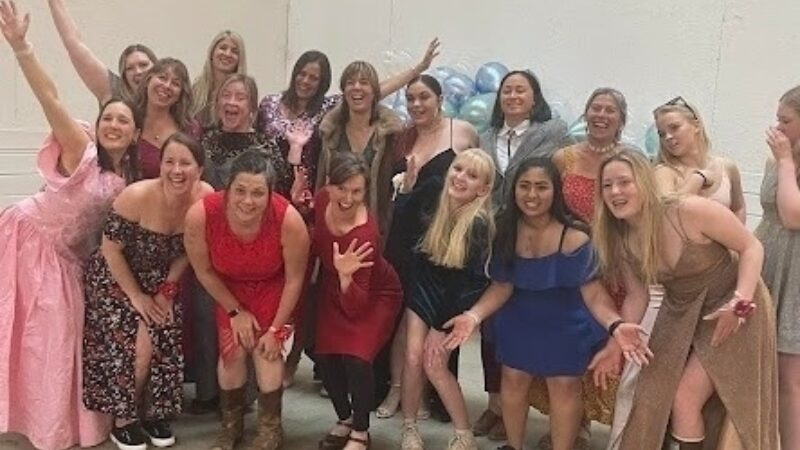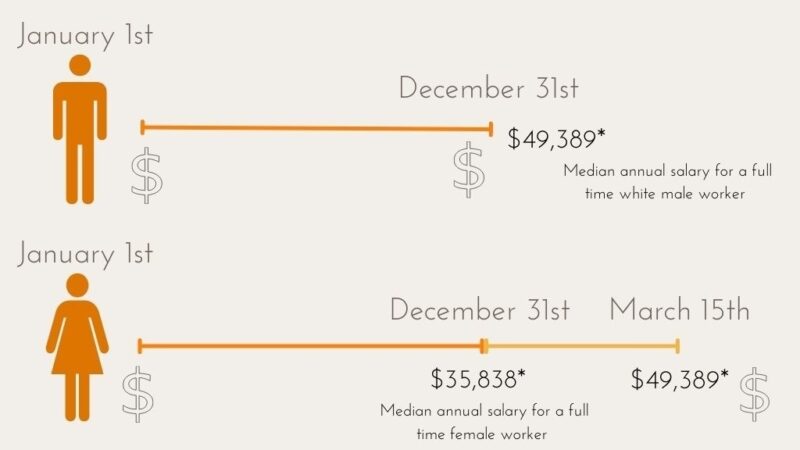PowerHouse Blog
Tara Mastel Helps Reimagine What is Possible in Montana Communities
January 27, 2022 | By Kelly Curtis
Tara Mastel has a passion for helping rural communities succeed.
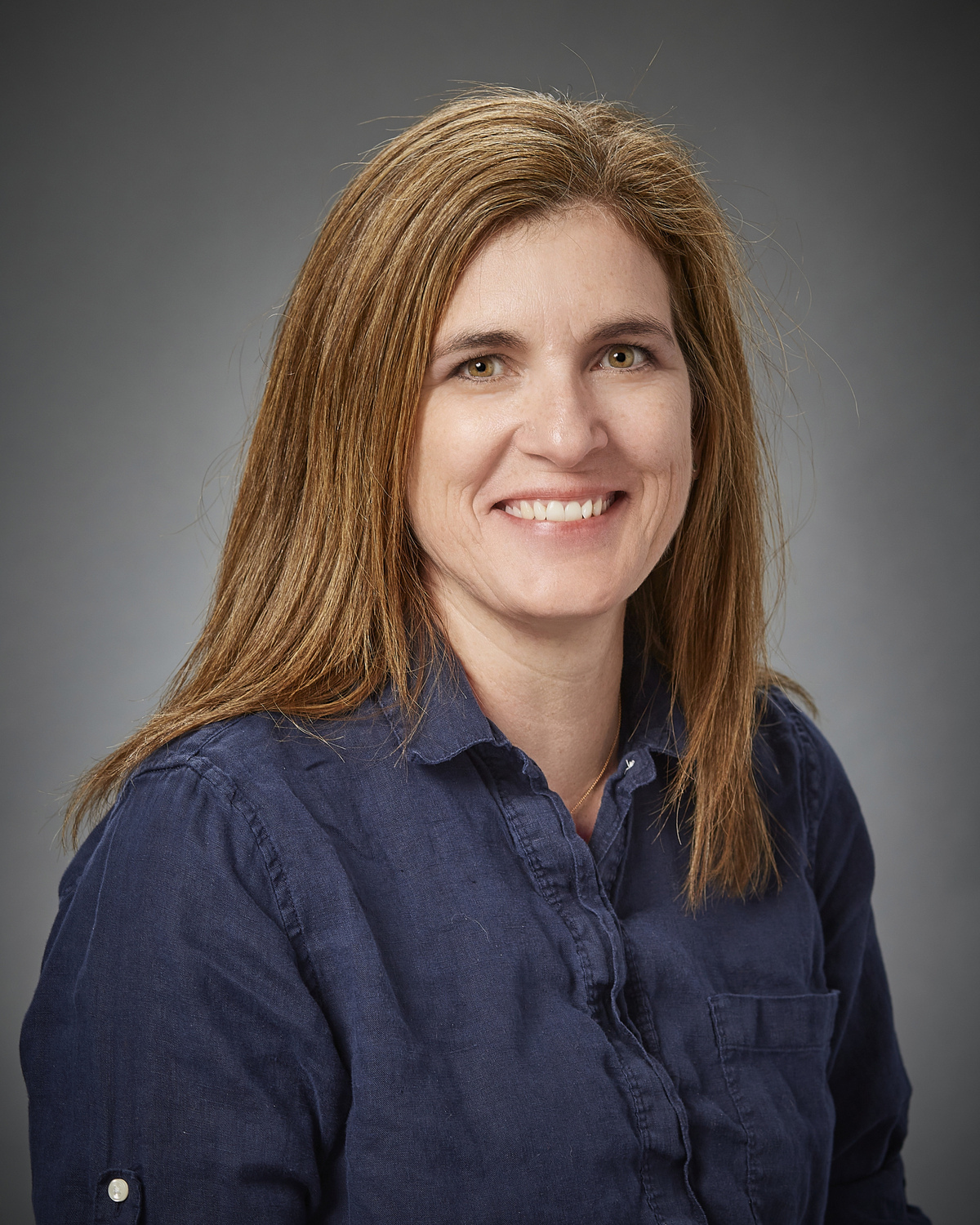
For more than ten years, she served as a Community and Economic Development Extension Agent in Jefferson County where she led a range of projects across the state, including historic building renovations, industrial park development, farmer’s markets, and local community foundations. Now she serves as the Associate Specialist and Program Leader for Community Development at Montana State University (MSU) Extension and serves on the board of the Red Lodge Area Community Foundation.
Tara herself grew up in a small community, Wolf Point, and saw the wealth of urban areas after she went to college in St. Paul, Minnesota, and worked in downtown Minneapolis after she graduated. She hoped to bring the prosperity and opportunity of urban areas to the rural communities of Montana. It was this goal that initially brought her into work focusing on rural economic development.
Reimagining Rural is Established
In 2019, Tara helped establish Reimagining Rural, a community-development initiative, and ignite conversation with Montana communities to help them imagine a more vibrant future for themselves and the steps needed to secure that future. In a recent interview with Tara, she tells us more about the program and how it’s shifting the rural narrative.
Reimagining Rural is a program of MSU Extension that partners with local communities across Montana to determine bright futures for their small communities. Once communities decide they want to participate in the program, Reimagining Rural’s goal is to share positive trends in rural life such as the fact that people are always moving into their communities. Participating communities receive financial resources to support community projects.
When it comes to finding communities to participate in the program, Tara references how she and Extension Agents worked to publicize the program to reach the attention of small towns in all corners of Montana. By working to promote the program and the application process, communities are inspired to take action and join.
She mentions that any community leader can initiate the program locally, though it is Extension Agents that bring the program to many communities as they are familiar with their local community and what opportunities might be useful.
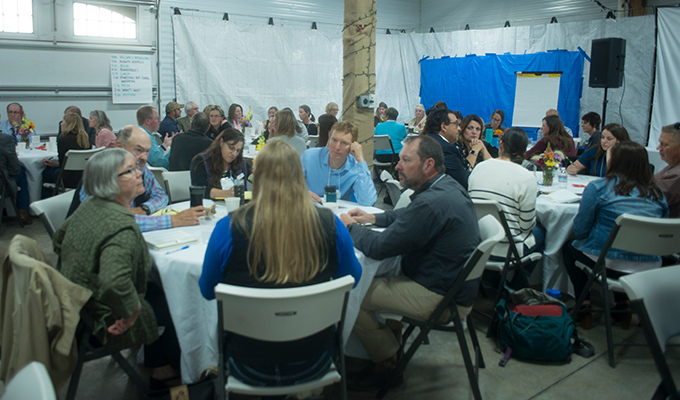
Tara shared how the idea for Reimagining Rural had been in the works for a while. “It started as an idea for a rural-focused conference. Then the conference in fall of 2019 went so well in Harlowton that our extension agent in Forsyth, Jennifer Anderson, had the idea to bring the information to volunteers working boots on the ground in their communities- that’s how we decided to bring Reimagining Rural to a virtual platform and to the people in the communities who really need to hear this stuff.”
The prevailing narrative that rural areas are dying, or that people are consistently moving away from small towns, is one that Reimagining Rural works to confront. It points to the data and information that shows people are still moving to and choosing to stay in small towns because of the close-knit community, access to the great Montana outdoors, quality education, and slower pace they offer. The focus of Reimagining Rural is to inspire local leaders to become more active in their communities and to think big about what the future of their towns could look like.
“We’re changing the narrative from ‘We’re dying, nobody wants to come here to the middle of nowhere’ to more communities are taking pride in what’s possible. These folks certainly have choices to live in other places, but they’re choosing to live in these rural places because they really love them."
From Brain Drain to Brain Gain
“We’re changing the narrative from ‘We’re dying, nobody wants to come here to the middle of nowhere’ to more communities are taking pride in what’s possible. These folks certainly have choices to live in other places, but they’re choosing to live in these rural places because they really love them. We hope to inspire folks and give them new ideas and new incentives to continue working hard to make their communities better.”
Reimagining Rural originally began as an in-person conference in 2019 and was then expanded into a virtual platform to make the program accessible to the individuals volunteering in their communities across the state who would not be able to attend an in-person conference. The first virtual statewide conference was proposed for April of 2020 but rescheduled in September of the same year due to the pandemic. MSU Extension saw continued virtual success in their most recent conference this last fall.
Communities participating in Reimagining Rural host in-person events where they can watch multiple speakers via Zoom and then hold their own discussions about how learned concepts can be applied locally. Previous speakers include Ben Winchester from the University of Minnesota Extension program, who talked about rural “Brain Gain”, and Sarah Calhoun, who moved to White Sulphur Springs and started Red Ants Pants, the Red Ants Pants Foundation, and a local music festival. Participants also heard from the community of Winnett, who started a successful Beef to Schools program, has a new community center, and is working to renovate a main street building.
“One thing we talked about last year was the importance of the arts to support rural community vitality. The folks from Havre had a semi-dormant arts council so they revitalized it and put together an art alley and outdoor concert. They breathed some life into the arts in Havre, and it’s been successful,” says Tara.
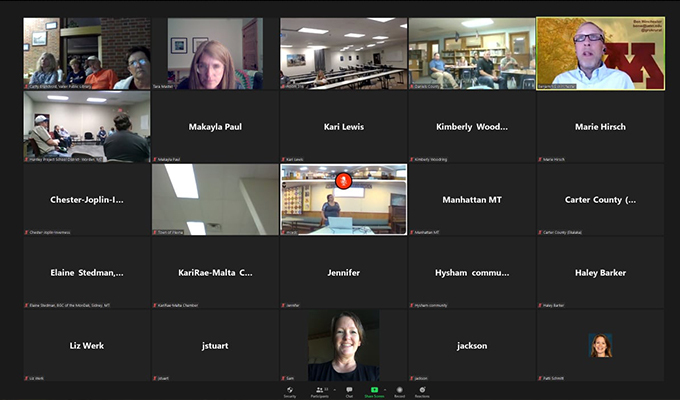
A Personal Twist on Leadership
Tara’s childhood experiences of spending time with her grandparents and great grandparents in her hometown of Wolf Point had a formative impact on her leadership style today. She describes the homestead-era ethic of care for and respect of one’s neighbors and how everyone depended on one another for survival in their remote area.
“I think that basic respect for anyone, regardless of their title or position, is at the core of my leadership style. It shows up through seeking input from all stakeholders and trying to create a welcoming environment for everyone to contribute.”
One of Tara’s favorite parts of working within Reimagining Rural is how easy it is for communities to participate and how few barriers there are to bringing these ideas to their grassroots community leaders.
“It [the Reimagining Rural program] provides a spark, a little structure, some urgency, and some money for the communities that are ready. It brings them together and is a nice, easy thing for them to grab a hold of and hang onto, make something happen. That’s what I love about it.”
The Newcomer Survey
MSU Extension also recently completed a Newcomer’s Survey to help understand why people are moving to rural communities in Montana and found that their results closely mirrored that of the University of Minnesota Extension’s Newcomer survey, which the Montana survey was modeled after. Tara shared that the Montana newcomer survey shows that people are moving to Montana communities for quality-of-life reasons, such as increased access to the outdoors, to live in a less congested place, and to have a slower pace of life rather than for financial reasons.
The survey showed that newcomers are invested in attending and participating in local community organizations.
For Tara, the key to success when leading these projects and avoiding stress and burnout is narrowing her to-do list and making sure her work life is manageable.
“I time block and turn the email off so I get into that flow, which is not that hard because I love what I’m doing. I find by turning off the phone, I can better focus and I have bigger chunks of intentional time. This gives me a bigger feeling of accomplishment and flow which is relaxing for my brain at least.”
Her advice to PowerHouse members who are interested in rural or economic development is to appreciate that rural communities are more than just agriculture.
“Agriculture is quite important in rural communities, but it is not the only thing going on. It happens a lot where people go directly to talking about agriculture in relation to rural communities and that leaves out so much.”
Although agriculture is important to many rural towns, programs like the arts, updating local infrastructure, community center programs, and small business development also help to create high quality of life experiences local community members deserve.
“Agriculture is quite important in rural communities, but it is not the only thing going on. It happens a lot where people go directly to talking about agriculture in relation to rural communities and that leaves out so much.”
Thank you to Tara Mastel for all your do for Montana communities and for taking the time to share about Reimagining Rural with our WFM and PowerHouse communities!

